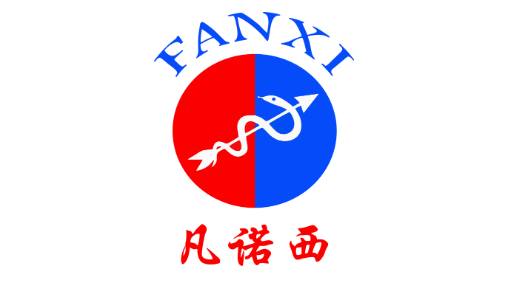On September 2, the global press conference for the launch of Aikening ®, or Albuvirtide for Injection (ABT), a new drug for the treatment of HIV-1 infection developed by Frontier Biotech, a pharmaceutical company based in the east Chinese city of Nanjing, took place in Nanjing.
Aikening, as a type of HIV-1 fusion inhibitor, can be used with other antiretroviral drugs to treat infected patients who have been treated with antiviral drugs but still suffer from viral replication. Aikening ® is the world's first long-acting HIV-1 fusion inhibitor and the first original anti-HIV drug in China. It has been successfully developed by Frontier Biotech independently and the company owns global intellectual property right of the drug.
Aikening ® has a new molecular mechanism which is effective against both common HIV-1 and drug-resistant viruses. Meanwhile, it enjoys some rare advantages, for example, the defined daily dose is low (one injection every week), and it sets barriers for drug resistance and is more safety.
HIV/AIDS prevention and control faces severe challenges
AIDS is a major infectious disease in the field of public health, mainly through sexual transmission. HIV mainly attacks the human immune system, and takes CD4T lymphocytes, the most important cells in the human immune system, as the first target of attack. Large areas of damage to immune cells make the body lose its immune function to the external world, and thus patients are prone to infection of various diseases, including malignant tumors, leading to a high death rate of AIDS.
From 2010 to 2017, the number of AIDS cases and deaths in China has been on the rise. According to National Health Statistics Report released by National Health Commission of the People's Republic of China, in 2017, the morbidity number was 57,194, and 15,251 people died of AIDS-related diseases. The numbers ranked first among those in the category A/B infectious disease in China. More than 100,000 people were infected with AIDS. As of June last year, China had about 718,270 people living with HIV/AIDS.
For a long time, drugs for AIDS treatment in China are imported drugs or generic drugs, and there is no independent R&D of new anti-AIDS drugs. As the demand for anti-AIDS new drugs increase rapidly in clinical treatment, helping Chinese patients get access to the new and effective anti-AIDS drugs independently developed at home has been the dream that the domestic pharmaceutical industry striving to achieve.
"As the first Class 1 anti-AIDS drug developed at home and the world's first long-acting HIV-1 fusion inhibitor that came into the market in China, Aikening ® marks that the R&D of anti-AIDS drug in China has reached a new high. Aikening ® has a better therapeutic effect on drug resistant patients who have failed treatment, and its side effects are smaller than those of other types of drugs. Therefore, a new treatment option is added for patients who have failed treatment and cannot tolerate the toxic and side effects of other drugs, which will also provide better medical treatment for AIDS patients in China. Because of its new mechanism of action, it is expected to be used for early intervention and prevention for some HIV-exposed people in the future," said Chairperson Hou Ren from Chinese Society of Infectious Diseases and Professor Li Taisheng, Director of the Infection Department of Peking Union Medical College Hospital (PUMCH).
Long-acting drugs help the AIDS treatment usher in a new era
Currently, there are more than 30 anti-AIDS drugs and multiple compound preparations on the market worldwide, and only one long-acting injectable drug is available. Some patients who use many drugs for a long time will inevitably develop drug resistance, which not only endangers their life and health, but also may cause the spread of drug-resistant viruses.
"The success of Aikening ® is a major new drug development, the crystallization of scientific researchers' wisdom, and a model of Chinese pharmaceutical R&D and medical clinical cooperation. The launch of Aikening ® has filled gaps in antiviral drugs in China. First, it is the world's first long-acting HIV fusion inhibitor, opening the era of long-acting anti-AIDS drugs in China. Second, the new mechanism of action of Aikening ® is effective against known resistant viruses which is complementary to existing drug mechanisms, and can save patients' lives. Third, as an injectable polypeptide drug, Aikening ® has low side effects and high safety, and gets rid of the impact of oral medication and gastroenteric function, and thus it can meet some urgent clinical needs," said Professor Ren Wuhao, Director of Infectious Center of Beijing You'an Hospital, Capital Medical University.
Aikening ® fills the gap of new anti-AIDS drug
The results of clinical trials of Aikening ® showed that the efficacy of the combination of Aikening ® and antiretroviral drugs was equal to or better than the standard combination recommended by the World Health Organization, and the safety for kidney was significantly higher than that of the control group. It offers more optimized treatment regimen and more drug choices for HIV/AIDS antiviral treatment, and provides new treatment options and new hope for inpatients, patients with drug resistance and those who suffer from surgery at home and abroad.
The successful development and launch of Aikening ® not only fills the gap in anti-AIDS drug R&D and improves the overall independent R&D in China, but also opens a new situation of long-term anti-AIDS drug treatment and leads the international treatment trend, which reflects the home-made strength of China.



Park WeiChart